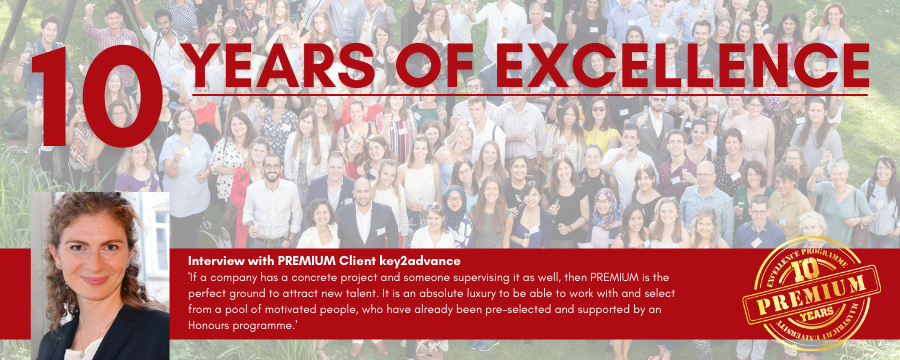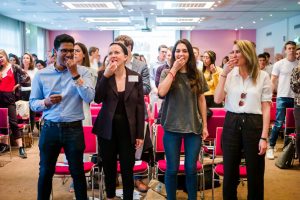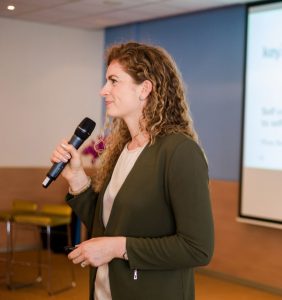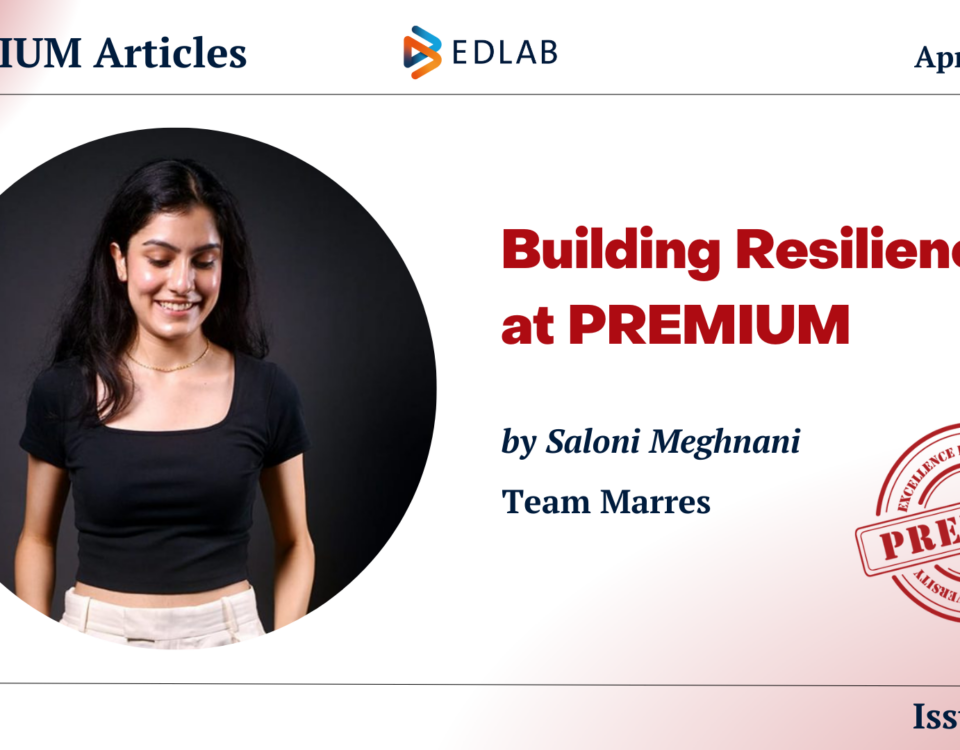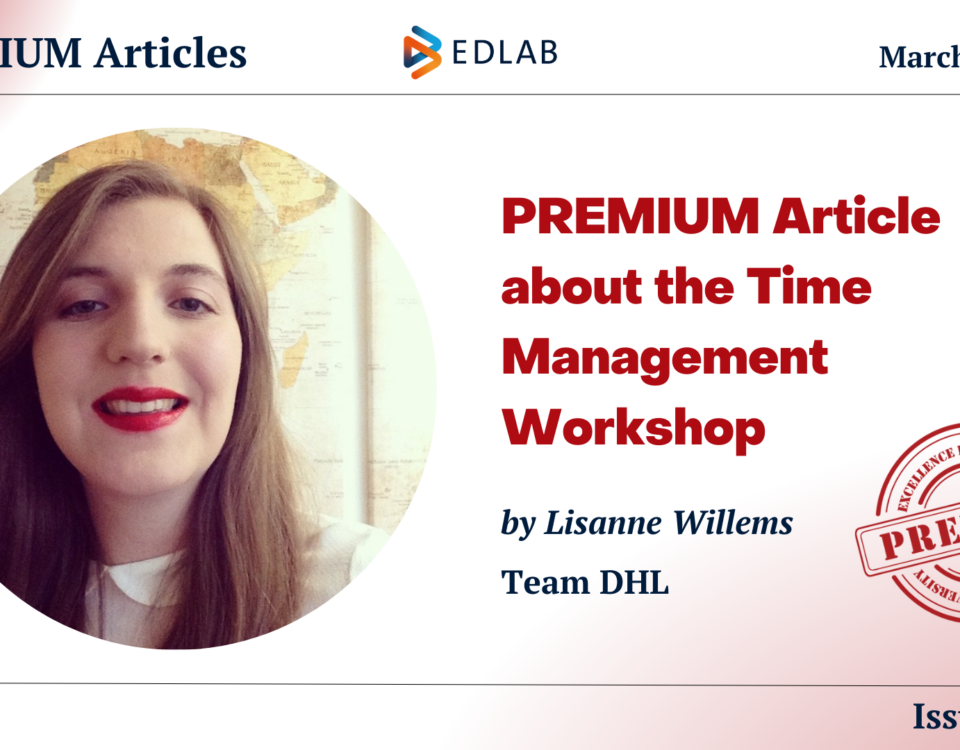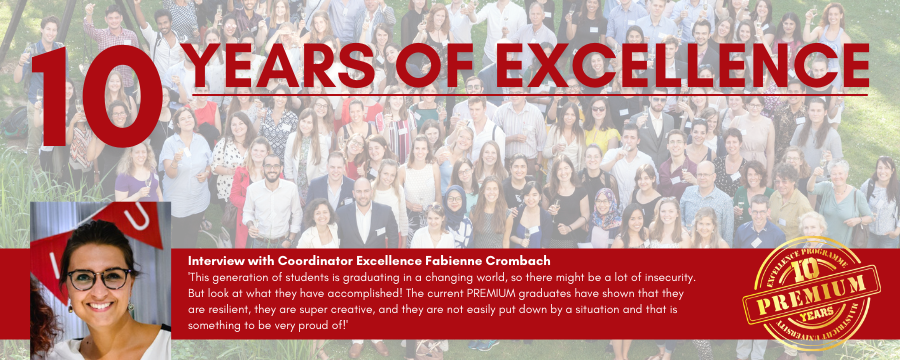
10 Years of PREMIUM – A decade of Excellence
28-04-2021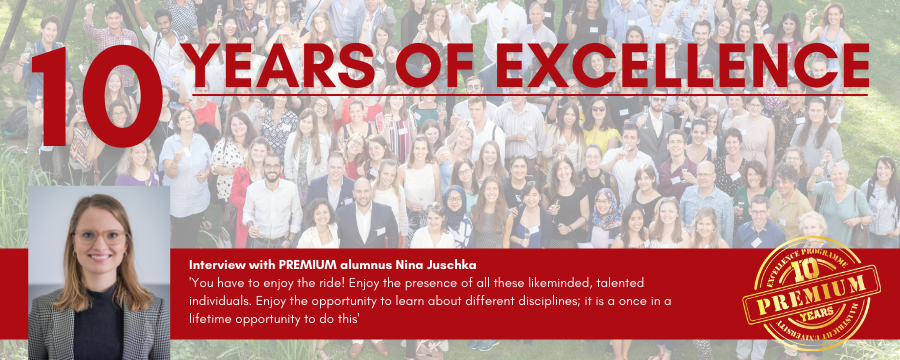
10 Years of PREMIUM – A decade of Excellence
04-05-2021In honor of 10 years of PREMIUM, we look back on what a decade of PREMIUM has meant for our alumni, coaches, mentors, clients and trainers.
We would like to introduce you to key2advance, a valued partner of PREMIUM’s client network with a long history of valuable contribution. Mona Shair-Wloch, the managing director of key2advance, founded this training and coaching consultancy almost 13 years ago.
She describes key2advance as “a network of 25 trainers, coaches, career advisors, and facilitators. We work, on the one hand, with universities and schools during transition phases, and that’s also how we are involved with PREMIUM. On the other hand, we also work in the corporate and non-profit sector where we offer training in leadership, high-performance and resilience, to name a few. Next to being managing director, I also provide many of the workshops myself.’
Let’s dive into this article to learn more about the important role of key2advance as a client in the PREMIUM programme!
What is your most special PREMIUM memory so far?
‘I have been working as a Public Speaking trainer for the PREMIUM programme for quite some years already but I’m very fond of one particular memory.
Two years ago, I was invited to give a keynote speech during PREMIUM’s Closing Event. My speech was about self-coaching and intrinsic motivation, which is all about doing something because you want to and not because of any external rewards.
We had a great exercise related to intrinsic motivation where the students discovered how powerful a positive inner dialogue can be for reaching your goals. There may have been some chili peppers involved! The students were then requested to write down one small step that they could take today to get closer to their goals.
After this session, a student called Martin came to talk to me. He showed me his piece of paper with his ‘one step to come closer to your goal’ and on this piece of paper was written: ‘talk to Mona’. He wanted to inquire whether we took interns at key2advance. Soon, we scheduled a Skype call and it was during these initial calls that we came up with the idea to develop the Next Generation Leadership Academy. Although we were already looking into such a programme, we lacked the resources to push it forward. We needed a Content Developer and Martin eventually took on this role.
After this experience with Martin, we thought it would be great to have more PREMIUM students involved in the programme. Thanks to him, we applied for the role of client in the PREMIUM programme.
I like this story because it shows how a beautiful story can develop from a series of events. It started with me as a trainer at UNU-MERIT and it ended with our newest academy and 6 current PREMIUM students helping us to improve it.’
How did your company initially get involved in the PREMIUM programme? What impression did you have of PREMIUM?
‘I initially became affiliated with UM for the first time when I gave a workshop to students at UNU-MERIT. Through this, I was contacted and asked by the coordinators of the PREMIUM programme to give Public Speaking workshops to students. We have been collaborating for more than 5 years since then.
My first impression of PREMIUM was that the programme was always coordinated professionally: well organized, very on top of things, straightforward, and smooth coordination. I must say I really enjoy training and working with PREMIUM students!
PREMIUM students are so motivated and extroverted because they want to perform and make an impact. You can already see leadership qualities here from the get-go. When I give my Public Speaking workshop to PREMIUM students, they always seem comfortable with standing in front of an audience and sharing their thoughts and ideas. I have always enjoyed the diversity of talents among the PREMIUM students immensely.’
Can you explain why your company continues to participate in the PREMIUM programme in the role of the client (or workshop provider)?
‘The real question is: why not? We like the programme’s concept, so we want to continue supporting it. Our participation in the programme gives us a sense of meaning: we are impacting the lives of young academics who want to make a difference in the world.
Also, PREMIUM is a good partner. The programme has a clear structure and it is so well organized that we only have to focus on the content rather than the organization. We also get the chance to work with such passionate students and they keep on impressing us repeatedly.
We also try to give back to students as much as possible: we are currently giving them coaching sessions and welcoming them to take part in an expensive programme of key2advance for free.
I would love to keep on participating in the PREMIUM programme in the role of client. I believe we can always find new and exciting projects that can contribute to a student’s learning and development journey.’
What qualities do you search for in an ideal PREMIUM project team?
‘When looking for a student team we have a few key values at key2advance that we keep in mind. Firstly, caring about self-development and supporting others is something we would like to see in students. Secondly, we look for a professional attitude. You need to deliver on time and take your job seriously. Lastly, we value students who are proactive with sharing ideas and challenging us.
During PREMIUM’s Kick-Off event, we noticed these elements in our students, even though it was conducted online. The students knew how to present themselves, they let the others speak as well, and they were very mindful of the time. This was great.’
Given the fact that key2advance creates a platform for the Next Generation Leadership: why do you believe that PREMIUM students are the future leaders?
‘A leader is someone always ready to go that extra mile. A student doing a MA programme already experiences a lot of demands. If you are willing to go the extra mile and do PREMIUM as well, then you are willing to challenge yourself and look beyond your comfort zone.’
In your opinion, why do you believe more organizations should join PREMIUM in the role of the client?
‘If a company has a concrete project and someone supervising it as well, then PREMIUM is the perfect ground to attract new talent. Most companies do not have the time to look through hundreds of applications. It is an absolute luxury to be able to work with and select from a pool of motivated people, who have already been pre-selected and supported by an Honours programme.
What’s more, during PREMIUM the students are already trained on how to best work together, to present well, and how to manage a project. It is almost like the HR and the learning and development trajectory is outsourced, and you get this great talent to work with you!
Even though we mostly work on a freelance basis, I would absolutely be open to working with PREMIUM students even after they have graduated. If there is a need we have, and we see someone that is very professional, then there are definitely options.’
What does your company gain from being a PREMIUM client?
‘Given the fact that we work with the Next Generation Leaders Academy and we believe that PREMIUM students are the next generation leaders, it is great to get their perspective and input. It helps us to see if we are on schedule and on target.
The PREMIUM students are almost like ambassadors for the next generation leaders, which we are trying to reach. Therefore, the PREMIUM students are not just supporting us, but they are providing us with a very useful perspective.’
Mona and Martin:
Are you interested to learn more about key2advance? Head over to their website for more information!
Special thanks to:
Mona Shair-Wloch, Founder & Managing Director key2advance
Martin van de Pas, Content Developer & Trainer key2advance
Natasha Schön, Content Developer & Brand Strategist key2advance

